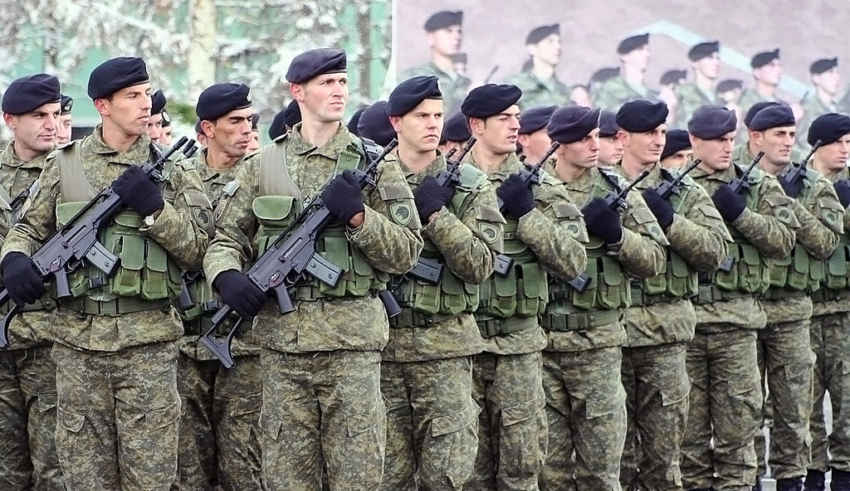
Tensions erupted during this summer in the Balkans after the government’s declaration that identity documents and vehicle license plates issued by Serbia would not be valued in Kosovo, as the Kosovo-issued documents are not valued in Serbia. The Serbs who live in the north of Kosovo and have Belgrade-issued plates and documents have strongly reacted to such a decision, although Serbia’s traveling policy for special passes for the Kosovo identity holders has been in effect for the last few years. It took the EU’s and US’s external intervention for Serbian President Aleksandar Vucic and Kosovo Prime Minister Albin Kurti to meet in Brussels and try to resolve the issue. The parties agreed on the abolishment of the special travel documents for the Kosovo ID holders and their non-introduction for Serbian ID holders. However, the resolution of the dispute was only partial, since the issue over the license plates remains. Pristina extended the deadline for all citizens to register their vehicle plates in Kosovo until the 31st of October. Amid growing concerns, a deputy commander of NATO’s peacekeeping mission in Kosovo stated that NATO is ready to act and even increase troop numbers if needed.
A flashback to Kosovo’s past reveals that this is more than a license plate dispute. It is both a political and territorial matter that has led to a long-standing conflict over sovereign control between Kosovar Albanians and Serbs. After the break-up of Yugoslavia in the 1900s, Kosovo, following Slovenia, Croatia, Bosnia, and Herzegovina, attempted to declare its independence. But ethnic and religious components played a catalyst role in Kosovo’s case. Muslim Albanians were in demographic control, holding 90% of the population in an area sacred to the Serbs, for whom was the seat of the Serbian Orthodox Church and a symbol of victory against Turks in 1912. However, when the Kosovo conflict started in 1998, it became clear that the fight was between ethnic Albanians and ethnic Serbs rather than Muslims and Christians. It was an ethnic conflict over Kosovo’s independence and sovereignty. The Kosovo Liberty Army, formed in 1996, committed several attacks against the Serbian police and politicians in the next two years. From Serbia’s side, Slobodan Milošević, the then President of the Federal Republic of Yugoslavia, saw the ethnic cleansing of Kosovo from its Albanian population as the only solution, leading the Yugoslav armed forces to commit a series of war crimes.
NATO’s intervention with an aerial bombing campaign against the Federal Republic of Yugoslavia in 1999 allowed hundreds of Kosovars to return to their homes after Milošević agreed to transfer the sovereign control of Kosovo to NATO and the United Nations. The adoption of Resolution 1244 under Chapter VII, placed Kosovo under the joint administration of NATO and the UN with a dual aim; to implement self-determination of the territory and support the process for the establishment of Kosovo’s future status. Annex to the UN Resolution 1244 is the Military Technical Agreement, also known as the “Kumanovo Agreement”, which was signed between the International Security Force and the Federal Republic of Yugoslavia and the Republic of Serbia. The agreement excluded any military involvement or security presence of the Serbian military forces in Kosovo. However, many have questioned the legal validity of the Kumanovo Agreement, claiming that violates Article 52 of the Vienna Convention on the Law of Treaties which considers a treaty as void in case it was adopted by threat or under the use of force. There is also a debate over the Resolution’s compliance with ius ad bellum and ius in bello.
On February 17th of 2008, after almost 3 years of negotiations between delegations from Kosovo and Serbia, Kosovo unilaterally declared its independence, with the obligation to accept two principles; multiethnicity and the participation of all communities in government. That does not mean that Serbia has recognized Kosovo as an independent state or will ever do. On an EU level, 27 member states have recognized Kosovo’s independence apart from Spain, Slovakia, Cyprus, Romania, and Greece.
In light of Russia’s invasion of Ukraine, the Kosovo-Serbia dispute can have serious consequences not only in the region but also in the Balkans and the whole of Europe. Serbia has been Russia’s local ally for years now, while Russia has long supported Serbia over the Kosovo issue. The gas agreement between the two countries, which secured Serbia with 3 years of gas at a very favorable price, confirmed Belgrade’s pro-Russian position. Based on polls, the majority of Serbs blame the West and Ukraine for Russia’s invasion, while only 27 percent consider Russia responsible. Of course, misinformation and disinformation from the media and social media platforms have played a decisive role in people’s perception of the events. From its side, Kosovo, amid the Russian invasion of Ukraine, characterizes the Kosovo-Serbia dispute as more necessary than ever.
By The European Institute for International Law and International Relations.















